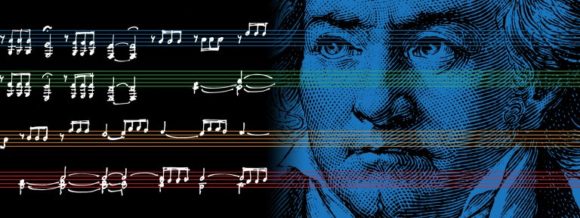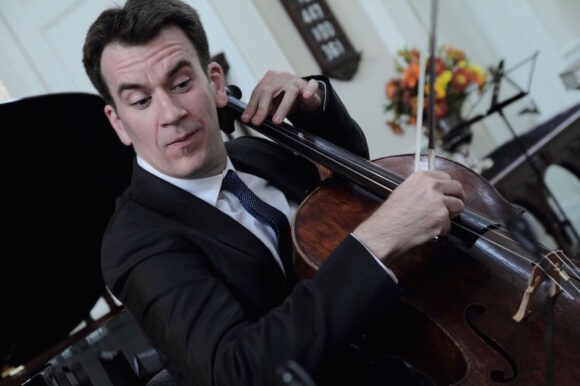
OLD LYME — We have just learned from Musical Masterworks that out of an abundance of caution and concern for the wellbeing of their patrons, volunteers and staff, the board has made the difficult decision to postpone their Beethoven concerts originally scheduled for March 13, 14 and 15.
The board is in the process of scheduling postponement dates. Tickets for the March concerts will be valid for the new concert dates — to be determined and announced soon.
2020 is the 250th anniversary of the birth of the remarkable, influential and prolific German composer Ludwig van Beethoven.
To celebrate this major milestone, Musical Masterworks will present the complete cycle of Beethoven’s String Quartets in six concerts over two extended weekends in March and May at the First Congregational Church of Old Lyme. The first weekend will feature performances this coming Friday, March 13, Saturday, March 14, and Sunday, March 15, while the second weekend of performances will take place on Friday, May 1, Saturday, May 2, and Sunday, May 3. Each of the six concerts will include three of the 18 quartets that Beethoven composed meaning that every concert will have a different program.
Asked in an exclusive telephone interview with LymeLine.com why he had chosen these works to honor Beethoven’s 250th birthday, Musical Masterworks Artistic Director and acclaimed cellist Edward Arron responds, “These string quartets — 18 in all — are considered by many to be one of the most pivotal and profound body of work in the history of western art.” Describing them as, “a deeply rich body of work,” Arron explains that composition of the quartets spans Beethoven’s musical career, “dating back to when he was a young, robust composer in his late twenties to some of the very last pieces he wrote,” prior to his death at the age of 56 in 1827.
Arron notes that the complete cycle of quartets represents, “The arc of Beethoven’s storied life — both compositionally and personally — with each quartet being a marvel in its own right.” adding, “Each quartet takes on a life of its own,” while at the same time, “… revealing something about Beethoven’s life.”

Arron explains that the quartets divide into three different periods with the early group composed when Beethoven could hear clearly, the middle segment being the pieces written when the composer had suffered significant hearing loss and the late works comprising those composed when Beethoven was effectively completely deaf. It is believed he could only hear, in Arron’s words, “certain very loud noises and some [musical] notes.”
Emhasizing that these late works were “the group that changed the course of musical history,” Arron states emphatically, “Given what he was doing” combined with his physical challenges, Beethoven’s achievement with these quartets was, “an almost impossible feat.”
Asked to elaborate on the significance of these later compositions, Arron notes that, in many ways, they represent the critical transition between the classical and romantic eras of music. In this late period, he points out that Beethoven “abandoned the formal structures of Haydn, Mozart” and became “unconcerned with the conventions of harmony and phrase length,” creating “surprises” throughout the quartets.
Variously describing the works from Beethoven’s late period as “utterly sublime,” “compositionally marvellous,” and “filled with incredible components,” Arron went on to say he felt they were composed out of Beethoven’s “stream of consciousness” rather than any sort of “formulaic measure.” The composer added movements to the traditional four movements and created “purely masterful” music ranging from the “whimsical to the absolutely profound.”
How is Arron feeling about the challenge of presenting all of Beethoven’s String Quartets? He answers animatedly, “I’m incredibly excited about just living inside these pieces with an audience that I know and have a relationship with,” adding that he is fulfilling, “A long-time dream to do the complete cycle.”
Arron also comments that the First Congregational Church is “one of his favorite places to make music,” since its acoustics are “so warm, so precise,” and “Every detail we put across can be heard by the audience.” He says the stage fits a string quartet “perfectly” and due the intimacy of the space, “There is a palpable interaction between the musicians and the audience … an electricity.”

The cycle will be performed by the renowned Ehnes Quartet, which is comprised of Arron, and his internationally acclaimed colleagues, violinist James Ehnes (a two-time GRAMMY winner), violinist Amy Schwartz Moretti, and violist Richard O’Neill. Arron describes the group as “the string quartet of my dreams,” noting, “We all share a deep passion for the [Beethoven] quartets.” The Ehnes Quartet is also performing the cycle at the Seattle Chamber Music Society: the first group of three concerts was performed in January and the second will be given in July.
In a departure from Musical Masterworks usual Saturday (5 p.m.) and Sunday (3 p.m.) performances, Arron has added a Friday (7 p.m.) performance to both the March and May concert weekends. The six concerts will not be presented in strict order of composition, but rather in a manner that, as far as possible, includes a quartet from each period in every concert.
When he took over as Artistic Director 11 years ago, Arron inherited a tradition of “Talking from the stage [immediately prior to a concert],” by way of giving an introduction to the upcoming music to the audience. He plans to do that before each quartet in these six concerts, but says, “My real goal is to create a bit of context,” adding with a chuckle, “I promise I’ll be a concise tour guide!”
Editor’s Note: To purchase a mini subscription ($100 each), a subscription to the Beethoven concerts or individual tickets ($40 adult; $5 student), visit Musical Masterworks at www.musicalmasterworks.org or call 860.434.2252.